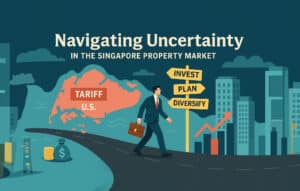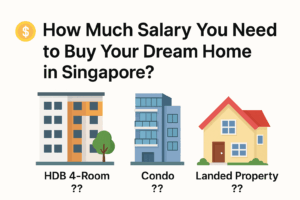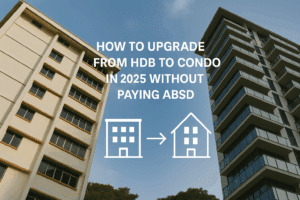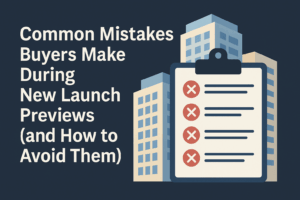Buying a condo in Singapore is one of the biggest financial and lifestyle decisions you’ll ever make. Whether it’s your very first home, an upgrade from your HDB flat, or an investment to grow your wealth, the choice comes with high stakes—and even higher rewards. Condominiums here aren’t just about owning a place to stay; they symbolize a modern lifestyle with exclusive facilities, security, and long-term value.
Singapore’s property market is unique, shaped by strict ownership rules, evolving government policies, and strong demand for private housing. Condos remain a popular choice among locals and foreigners alike, offering a blend of convenience, comfort, and prestige that public housing often can’t match. With more Singaporeans aspiring to own private property and foreign buyers eyeing the city-state’s stable real estate sector, condos continue to hold their appeal in 2025.
This complete guide is crafted for anyone considering a condo purchase in Singapore—whether you’re a first-time buyer navigating eligibility requirements, an HDB owner planning to upgrade, a foreigner exploring your options, or an investor seeking long-term returns. No matter where you are on your property journey, this guide will help you make informed, confident, and future-proof decisions.
Types of Condominiums in Singapore
When it comes to buying a condo in Singapore, you’ll quickly realize that not all condos are the same. The market offers a variety of options, each with its own advantages and things to consider. Let’s break down the main types in a simple way so you can see which one might be right for you.
New Launch Condos (Direct from Developer)
New launch condos are brand-new units sold directly by developers, often before the project is even completed. Buying one means you’ll get the latest designs, modern layouts, and brand-new facilities. Many buyers also like new launches because of their potential for capital appreciation once the project is finished. On the flip side, you’ll usually need to wait two to three years before you can move in.
Best for: Buyers who want a modern home, investors looking for growth potential, and those who don’t mind waiting for completion.
Resale Condos (Buying from Existing Owners)
Resale condos are units that have already been built and lived in. One of the biggest perks is that you can move in right away. You also get to see the actual condition of the unit and the surroundings before making your decision. However, resale condos might come with higher renovation costs, depending on the age of the property.
Best for: Families who want a home immediately, buyers who prefer established neighborhoods, and those who want to see the finished product before committing.
Executive Condominiums (ECs)
Executive Condominiums are a unique hybrid between public and private housing. They’re developed and sold by private developers but come with eligibility conditions set by the government, similar to HDB flats. After 10 years, ECs become fully private, which can boost their value. They’re usually more affordable than private condos, but buyers must meet certain income and citizenship requirements.
Best for: Singaporean families who want condo living at a lower price, and who meet the eligibility criteria.
Freehold vs Leasehold Properties
In Singapore, condo ownership is also influenced by the type of land tenure.
- Freehold condos give you ownership indefinitely. They often command higher prices and stronger long-term value.
- Leasehold condos (usually 99 years) are more affordable but lose value as the lease runs down.
Eligibility & Regulations
Before you dive into condo hunting, it’s important to understand who is eligible to buy and the rules that come with it. Singapore’s property market is tightly regulated, and the rules differ depending on whether you’re a Singaporean, Permanent Resident (PR), or foreigner. Knowing these upfront saves you time, money, and a lot of headaches later.
Who Can Buy Condos in Singapore
- Singapore Citizens – You can freely purchase new launch condos, resale condos, or executive condominiums (ECs), provided you meet the income and eligibility requirements for ECs.
- Permanent Residents (PRs) – PRs are allowed to buy private condos, but ECs are trickier. You can only buy resale ECs that are more than 5 years old.
- Foreigners – Foreigners can buy private condos, both new launches and resale units. However, ECs and landed properties usually aren’t allowed unless special approval is granted.
Government Restrictions for Foreigners
While foreigners can own private condos without restriction, there are still some rules to note:
- No landed property without approval – Foreigners typically cannot buy landed homes unless approved by the Land Dealings Authority.
- Additional Buyer’s Stamp Duty (ABSD) – Foreigners must pay a much higher ABSD compared to citizens and PRs, which significantly raises the overall cost of buying property in Singapore.
- Ownership restrictions on ECs – Foreigners are not allowed to buy new ECs at all. They may only buy ECs that have reached the 10-year mark, at which point they become fully private.
HDB Upgraders: Rules & Timeline
For HDB owners looking to upgrade to a condo, the process is a little more complex because of the Minimum Occupation Period (MOP) and rules on selling your flat.
- MOP Requirement – You must stay in your HDB flat for at least 5 years before you’re allowed to buy a private condo.
- Sell First or Buy First? – After your MOP, you can either:
- Sell your HDB first, then buy a condo (lower financial burden, no need for additional loan restrictions).
- Buy a condo first, then sell your HDB (more flexibility but subject to ABSD, which can be refunded if you sell your HDB within the given timeframe).
- Financing Considerations – If you plan to own both properties temporarily, you’ll face tighter loan restrictions and need to prepare more cash upfront.
The choice depends on your budget, how long you plan to stay, and whether you see the property as a home or an investment.
Financial Planning Before Buying
Buying a condo in Singapore is exciting, but it also comes with one of the biggest financial commitments of your life. That’s why financial planning is the first—and most important—step before you make the purchase. Knowing how much you can afford, what loan limits apply, and how CPF savings fit into the picture will help you avoid overstretching yourself.
Determining Budget & Affordability
Your budget isn’t just about the condo’s listed price. It should also factor in additional costs like stamp duties, legal fees, renovation expenses, and monthly repayments. A good rule of thumb is to buy within your means—ideally, your housing costs shouldn’t exceed 30–35% of your monthly income. Many buyers use online affordability calculators to get a clearer picture of how much they can borrow and repay comfortably.
Loan-To-Value (LTV) Rules
The LTV ratio determines how much you can borrow from a bank for your condo purchase.
- For your first housing loan, the maximum LTV is usually 75% of the property value. This means you’ll need to pay at least 25% in down payment (5% in cash, the rest in CPF or cash).
- If you already have an existing housing loan, your LTV limit will be lower, which means you’ll need a higher cash or CPF down payment.
These rules ensure buyers don’t take on more debt than they can handle.
Mortgage Servicing Ratio (MSR) & Total Debt Servicing Ratio (TDSR)
Singapore has two key frameworks that limit how much of your income can go toward loan repayments:
- MSR (Mortgage Servicing Ratio) – Applies mainly to HDB flats and ECs. It caps your monthly mortgage repayments at 30% of your gross monthly income.
- TDSR (Total Debt Servicing Ratio) – Applies to all property purchases, including condos. It limits your total monthly debt obligations (including car loans, credit card bills, personal loans, and mortgages) to 55% of your gross monthly income.
These measures prevent over-borrowing and ensure buyers remain financially stable even in tough times.
CPF Usage for Property Purchase
The Central Provident Fund (CPF) is a key tool for many Singaporeans buying property. You can use your CPF Ordinary Account (OA) savings to pay for:
- The condo’s down payment (except the minimum cash portion)
- Monthly mortgage installments
- Stamp duties and legal fees (partially, depending on eligibility)
However, CPF usage is subject to limits tied to the condo’s remaining lease. If the property’s lease doesn’t last until the youngest buyer turns 95, the CPF amount you can use will be capped.
Step 1: Financial Planning
What to Expect:
Begin by assessing your financial situation, including your income, savings, and any existing debts. Establish a clear budget, keeping in mind the additional costs involved, such as stamp duties, legal fees, and renovation costs.
Key Actions:
- Calculate your Total Debt Servicing Ratio (TDSR) to determine your borrowing capacity.
- Obtain pre-approval for a mortgage with any of your preferred banks. Alternatively, you can explore pre-approval for a mortgage with us, which is non-binding at this stage. You’ll only need to decide on the bank after receiving the Option to Purchase (OTP).
- Tools like an Affordability Calculator and Progressive Payment Calculator can help you better understand your financial limits and plan your purchase.
Step 2: Register Your Interest
What to Expect:
This step is optional and applies only if you purchase a condo on launch day. For post-launch condo sales, this step is usually skipped. Registering your interest gives you priority access and updates on the project.
Key Actions:
- Fill out an Expression of Interest (EOI) form and submit a blank cheque for the booking fee (5% of the purchase price). Both the EOI and cheque are non-binding. If you decide not to proceed, your blank cheque will be returned without obligation.
Step 3: Shortlist Condos and Visit Show Flats
What to Expect:
Research different condo launches based on location, amenities, developer reputation, and market trends. Visiting show flats helps you evaluate the unit’s layout, design, and quality of finishes.
Key Actions:
- Make appointments to visit show flats and take notes on each project’s pros and cons.
- While many agents are available, choosing the right one to work with is essential. Look for agents who are up-to-date with market trends, have strong analytical skills, and can guide you throughout your real estate journey. A great agent will help you make informed decisions and plan your real estate portfolio for the long term.
Step 4: Pay the Booking Fee
What to Expect:
Once you’ve selected your preferred unit, you’ll need to pay a booking fee to secure your option to purchase. The booking fee typically represents 5% of the purchase price.
Key Actions:
- Sign the Option to Purchase (OTP) to confirm your intent. These days, most buyers pay the booking fee via internet banking, so it’s important to prepare beforehand. Add the developer’s account details and raise your transfer limit before launch day to avoid delays. Cheques and cashier’s orders are still accepted, but digital transfers are increasingly common.
Step 5: Loan Approval and Legal Representation
What to Expect:
Finalize your mortgage loan with the bank and engage a solicitor to handle the legal aspects of the purchase.
Key Actions:
- Compare loan packages from various banks to find the best deal for your needs. If you need assistance, our mortgage partners can help. They source the entire banking market to offer you various packages, ensuring you get the best fit.
- Secure a Letter of Offer from the bank, which outlines the final loan terms.
- Appoint a solicitor to manage the conveyancing process.
Step 6: Sign the Sales & Purchase Agreement (S&P)
What to Expect:
After receiving the OTP, you must sign the Sales & Purchase Agreement (S&P) within two weeks, legally committing to the purchase.
Key Actions:
- Pay an additional 15% down payment (using cash or CPF) within eight weeks of signing the OTP.
- Pay the Buyer’s Stamp Duty (BSD) and/or Additional Buyer Stamp Duty (ABSD) within two weeks of signing the S&P.
Step 7: Progressive Payments During Construction
What to Expect:
During construction, payments are made in stages as the project hits specific construction milestones.
Key Actions:
- Keep current with construction progress and ensure timely payments as outlined in your S&P agreement.
- You can also try using a progressive payment calculator to help you estimate your progressive payment schedule, stamp duties, monthly mortgage payments, and initial capital outlay.
Step 8: Temporary Occupation Permit (TOP) and Key Collection
What to Expect:
When the condo is ready for occupancy, the developer will receive the Temporary Occupation Permit (TOP), which will allow you to collect your keys.
Key Actions:
- Plan your key collection day. For good luck, bring a pineapple and roll it into your new home, a fun local tradition that symbolizes prosperity.
- Prepare for renovations and ensure you follow any guidelines provided by the developer.
Purchasing a new launch condo in Singapore may seem complex, but following these steps and staying organized can make the process much smoother while avoiding common buyer mistakes. Each stage, from financial planning to key collection, is essential to ensuring a successful and stress-free buying experience. Keep researching, seek professional advice, and choose partners to guide you through this exciting journey!
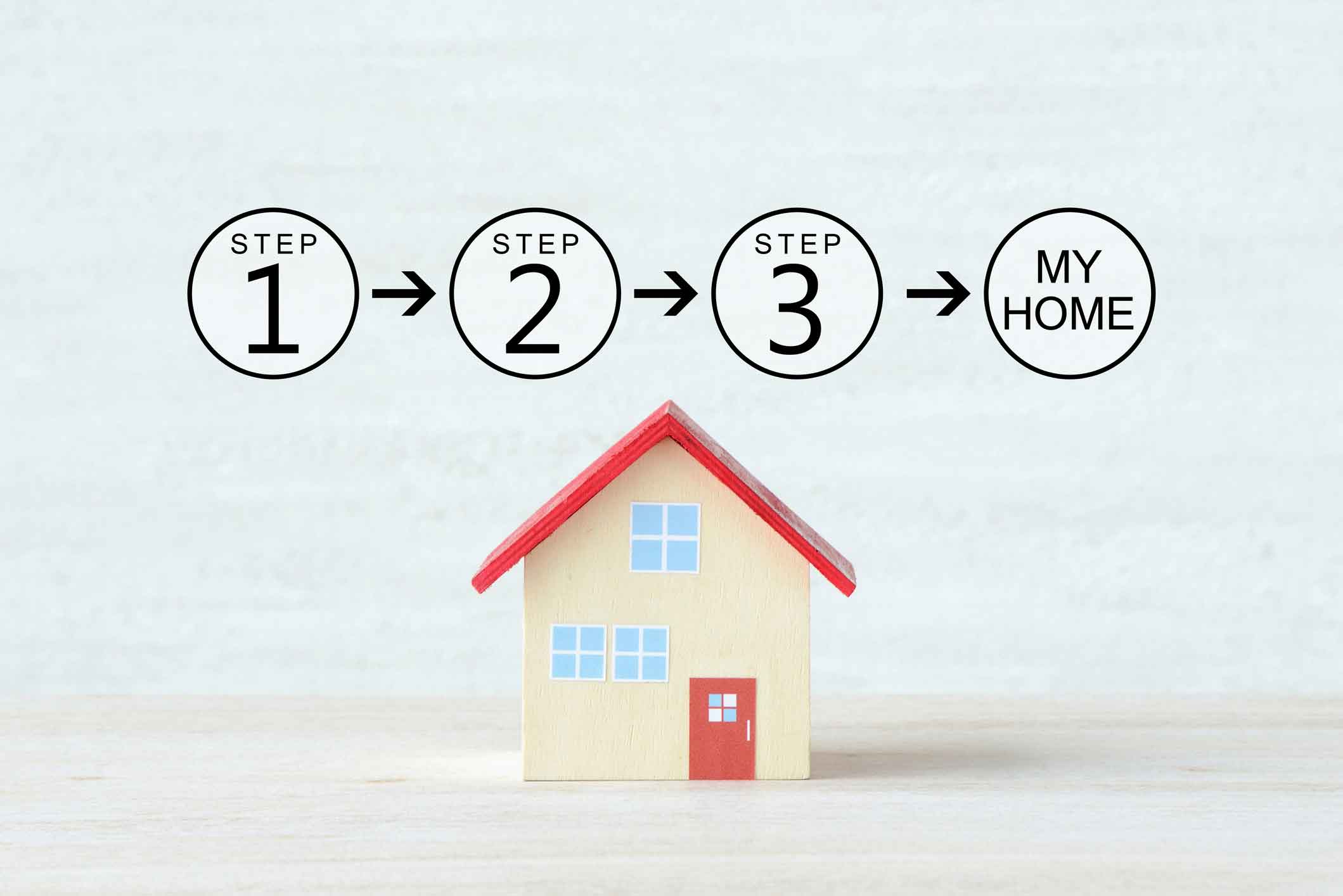
Key Considerations Before You Buy
Before signing on the dotted line, it’s important to look beyond the glossy brochures and showroom tours. A condo is not just a place to live—it’s a long-term investment. Here are some key things to consider before making your purchase.
Location (Near MRT, Schools, Malls, CBD)
Location is one of the biggest factors that will influence both your lifestyle and your property’s future value. A condo near MRT stations, reputable schools, shopping malls, and the Central Business District (CBD) will always attract strong demand. If you plan to rent out your unit, proximity to business hubs and transport networks makes it easier to find tenants. Convenience today could also mean higher resale value tomorrow.
Developer Reputation
Not all condos are built equal. Choosing a project by a reputable developer gives you peace of mind about construction quality, timely completion, and proper maintenance. Well-known developers also tend to design projects with better layouts and facilities, which enhances both living experience and long-term value.
Condo Facilities & Maintenance Fees
Modern condos come with attractive facilities such as swimming pools, gyms, BBQ pits, and even co-working spaces. While these add to your lifestyle, remember that they also come with monthly maintenance fees. The bigger the condo and the more facilities it has, the higher the fees. Always check the estimated maintenance charges and factor them into your monthly expenses before committing.
Floor Plans and Unit Layouts
A unit’s layout can make a huge difference in how comfortable and functional your home feels. Look out for efficient floor plans that maximize space, good natural lighting, and practical kitchen and bathroom designs. For families, having a clear separation between bedrooms and living areas can make daily life easier. For investors, smaller, well-designed units often yield better rental demand.
Potential for Capital Appreciation and Rental Yield
If you’re buying with investment in mind, study the condo’s potential for growth. Factors such as upcoming MRT lines, new malls, or government redevelopment plans in the area can boost future prices. Rental yield is another key consideration—areas with strong rental demand (like the CBD, city fringe, or near universities) can provide steady cash flow while your property appreciates in value.
Common Mistakes to Avoid
It’s easy to get caught up in the moment and overlook some important details when buying a condo. To avoid regrets later, here are the most common mistakes buyers make—and how you can steer clear of them.
Overstretching Your Budget
One of the biggest pitfalls is falling in love with a property that’s beyond your means. While banks may approve a certain loan amount, it doesn’t mean you should borrow to the maximum. Overstretching your budget can leave you struggling with monthly repayments and little room for emergencies. Always leave a buffer in your finances for unexpected costs like renovations, rising interest rates, or job changes.
Ignoring ABSD and Hidden Costs
Many buyers forget to account for Additional Buyer’s Stamp Duty (ABSD), legal fees, and other hidden charges. These can easily add up to tens of thousands of dollars on top of the purchase price. If you’re upgrading from an HDB flat, remember that ABSD may apply unless you sell your flat within the refund window. Being caught off guard by these costs can derail your financial plans.
Relying Only on Hype Instead of Fundamentals
Just because a condo launch is heavily marketed doesn’t mean it’s the best choice. Some buyers rush in due to fear of missing out (FOMO), without checking fundamentals like location, developer reputation, or long-term rental demand. Always compare projects, study market trends, and focus on practical factors rather than glossy advertisements.
Forgetting Exit Strategy (Resale Potential & Rental Demand)
Your condo may be a dream home today, but what about five or ten years down the road? If you decide to sell or rent it out, you’ll want strong demand and good resale value. Choosing a condo in a less desirable location or with poor layouts may make it harder to exit later. Always think ahead—what would make your property attractive to future buyers or tenants?
Financing Your Condo Purchase – link to other blog
One of the biggest parts of buying a condo is figuring out how to finance it. Since condos are private properties, you won’t be eligible for an HDB loan (except under certain conditions for Executive Condominiums). Understanding your financing options, interest rates, and future refinancing opportunities will help you save money in the long run.
Bank Loan vs HDB Loan (For ECs)
- Private Condos – If you’re buying a new launch or resale private condo, you can only take a bank loan. HDB loans are not available.
- Executive Condominiums (ECs) – When buying a brand-new EC directly from a developer, you can also only take a bank loan. If you’re buying a resale EC (after 5 years), the same applies—no HDB loan option.
The key difference is that HDB loans generally offer more stable interest rates and lower upfront cash requirements, but since ECs fall under private property rules, bank loans are the only option.
How to Get the Best Mortgage Rates
Mortgage rates in Singapore fluctuate, especially since most are tied to market benchmarks like SORA (Singapore Overnight Rate Average). To get the best deal:
- Compare Banks – Different banks offer varying fixed and floating rate packages.
- Fixed vs Floating Rates – Fixed rates give stability for a set period, while floating rates may be lower initially but can rise over time.
- Use a Mortgage Broker – Brokers can help you compare packages and sometimes secure exclusive deals.
Consider Lock-In Periods – Some loans have lock-in clauses where you’ll be charged a penalty if you refinance or sell within a certain timeframe.
Refinancing Options Later On
After a few years, it’s worth reviewing your loan to see if refinancing makes sense. Refinancing means switching to another bank that offers better rates, which can save you thousands of dollars in interest over the loan’s lifespan. Many owners refinance every 2–3 years to keep their mortgage costs low.
However, always check:
- If your current loan has a lock-in period
- The legal and processing fees involved in refinancing
- Whether the new package truly offers long-term savings
Resale vs New Launch: Which Should You Choose?
One of the first big decisions is whether to go for a resale unit or a new launch. Both options come with their own advantages and trade-offs, so the right choice depends on your priorities, timeline, and financial goals.
Pros and Cons of Each
New Launch Condos
Pros:
- Brand-new facilities and modern layouts
- Lower upfront cash because of progressive payment scheme
- Higher potential for price appreciation once completed
- Developer discounts and early-bird promotions may apply
Cons:
- Waiting period of 2–3 years before you can move in
- Floor plans are based on showflats, not actual units
- Price per square foot is usually higher than resale units
Resale Condos
Pros:
- Immediate move-in after completion of the sale
- Ability to view the actual unit and condition before buying
- Established neighborhoods with existing amenities
- Often larger floor areas compared to new launches
Cons:
- Higher upfront cash/CPF requirements
- May need renovation or upgrading costs
- Older developments may have higher maintenance fees
Timeline for Move-In
- New Launch: You’ll need to wait until construction is completed, typically 2–3 years after booking.
- Resale Condo: The move-in process is much faster, usually within 8–12 weeks once the transaction is finalized.
If you need a home immediately, resale is the clear winner. If you can wait and want a fresh property with long-term growth potential, new launches might suit you better.
Investment Considerations
For investors, the choice often boils down to strategy:
- New Launches tend to offer stronger appreciation potential, especially if you buy early in the project. Future infrastructure and price growth can benefit long-term investors.
- Resale Condos may offer better rental yields immediately since you can rent out the property right after purchase. Plus, you can pick units in prime areas where land supply is limited.
The key is to balance immediate returns (resale rental income) versus long-term growth (new launch appreciation).
What Happens After Buying?
The journey doesn’t end once you’ve collected your keys. Owning a condo in Singapore comes with ongoing responsibilities and financial commitments. Whether you plan to live in your unit, rent it out, or eventually sell it, here’s what to expect after the purchase.
Mortgage Payments and CPF Deductions
Your biggest ongoing cost will be your monthly mortgage repayments. These can be paid using a combination of cash and CPF Ordinary Account (OA) funds. If you’re using CPF, the deductions will be made automatically each month. It’s important to monitor your CPF balance because once it runs low, you’ll need to cover the full repayment in cash. Keeping a buffer ensures you won’t be caught off guard if interest rates rise.
Monthly Maintenance Fees (MCST Fees)
Every condo owner must pay Management Corporation Strata Title (MCST) fees. These fees go toward maintaining common areas like swimming pools, gyms, landscaping, lifts, and security. The amount depends on your unit size and the condo’s facilities—the more extensive the amenities, the higher the fees. Budgeting for these monthly payments is crucial since they’re compulsory and can add up significantly over the years.
Renting Out Your Condo (Rules & Yield)
If you’re buying as an investment, renting out your condo can generate steady income. The Urban Redevelopment Authority (URA) sets minimum rental rules:
- Private condos can be rented out for a minimum of 3 months per lease.
- Short-term rentals (like Airbnb) of less than 3 months are not allowed.
Rental yields depend on location, demand, and unit type. Properties near MRT stations, the CBD, or international schools tend to attract higher rental demand. Always factor in agent fees, property tax, and upkeep costs when calculating your net rental yield.
Selling in the Future: Taxes & Capital Gains
When you eventually decide to sell, there are a few financial considerations:
- Seller’s Stamp Duty (SSD): If you sell your condo within 3 years of buying, you’ll need to pay SSD, which is a percentage of the selling price. The rate decreases the longer you hold the property.
- No Capital Gains Tax: The good news is Singapore does not impose capital gains tax on property sales—so profits from a well-timed sale are yours to keep.
- Market Timing: Future resale value depends on factors like lease decay (for leasehold condos), overall market conditions, and new developments in the area.
Conclusion & Final Tips
Buying a condo in Singapore is a major milestone, whether you’re upgrading your lifestyle, investing for the future, or purchasing your very first home. The process may seem overwhelming at first—with eligibility checks, financing rules, taxes, and hidden costs. Once you break it down step by step, it becomes much more manageable.
To recap, the key things to remember are:
- Understand your eligibility and regulations before you even start looking.
- Plan your finances carefully—from budgeting and loan limits to stamp duties and maintenance fees.
- Choose wisely between new launches and resale condos, based on your lifestyle needs and investment goals.
- Think long term—consider exit strategies, rental demand, and future capital appreciation.
Final tip: how to save on your first purchase
A condo is not just a home; it’s also a significant financial commitment. Rushing into a purchase without proper planning can lead to regrets later. Take your time, do your research, and always keep a buffer in your finances for unexpected changes like rising interest rates or shifting market conditions.
If you’re still unsure about which condo suits you best, it’s a smart move to consult a property expert who can provide tailored advice. You can also start exploring the latest condo launches in 2025 to get a sense of what’s available and how each option fits your needs.
With the right planning and guidance, buying a condo in Singapore can be one of the most rewarding decisions you’ll ever make—both as a home and as an investment.
🚀 Stay Ahead in the Property Market!
Be the first to receive exclusive updates, launch reviews, insider deals, and real-time alerts — directly on your preferred app.
👉 Join our community now:
🌐 Spread Knowledge. Share with Others.
Click any of the icons below to share this content with those who may benefit from it.




